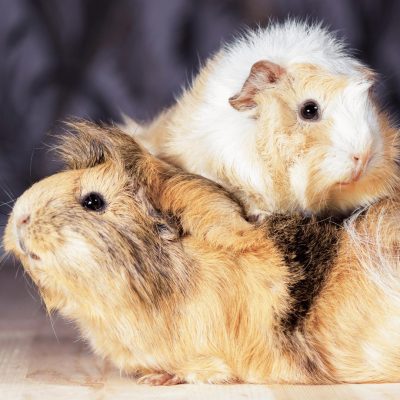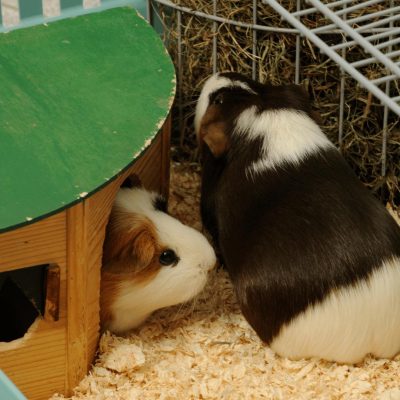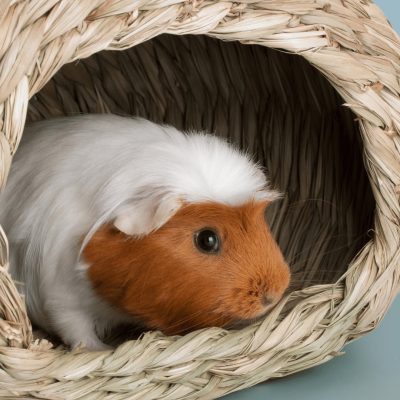Guinea pig cages, Enclosures, Guinea pig bedding
What to Know Before Getting a Pet Guinea Pig
Guinea pigs are often touted as the perfect first pet for children. This perception is due in part to their small size and adorable appearance, which make them seem ideal for youngsters just learning to care for a pet. However, guinea pigs actually have fairly unique care requirements that make them more suitable for older children and adults. For one thing, they require significant attention and social interaction with their human caregivers, making it difficult for small children to give them the care they need. Additionally, Guinea pigs also require regular bathing and grooming, which can be difficult or even dangerous for young kids to attempt on their own. So if you’re considering getting a pet guinea pig, keep in mind that age really does matter when it comes to this cuddly little creature!

Getting to Know Your New Pet
If you handle guinea pigs, also known as “piggies,” frequently and gently while they’re young, they’ll happily cuddle in your lap while you watch television. They pay close attention to what their owners are doing and can differentiate between family members.
For example, they’ll make the classic piggy “Wheek!” to beg for treats when you open your refrigerator or open a plastic bag. And they’ll squeal for dinner when the person who feeds them enters the room. They’re far smarter than people give them credit for, and you can even teach them simple tricks!
Guinea pigs are highly sociable rodents which live in groups called “herds.” If they are caged alone, they will become extremely depressed. So, you need to plan on having two or more of the same sex (so they don’t breed). Typically, female cage mates get along with each other, while males may fight over territory.
Where do I get guinea pigs from?
If you are thinking about getting a Guinea pig for yourself, there are a few different options for where you can purchase one. You can go to your local pet store or even better, consider adopting Guinea pigs from your local guinea pig rescues.
Adopting Guinea pigs from a rescue has many benefits beyond just helping to support a good cause. By giving these animals a new home, you will be able to provide them with the care and love that they deserve. Additionally, adopting Guinea pigs from a rescue allows you to get help from experienced pet owners who will be able to answer any questions you may have about taking care of your new pet.
The life of a guinea pig is saved when you adopt one. Not only do they have plenty in common with humans, but by taking on this responsibility it will help prevent overcrowding at shelters and give these adorable animals some much-needed love!
Guinea pig cages and accessories
Guinea pigs are social creatures that enjoy the company of their own kind, so it is important to provide them with a spacious cage that can accommodate at least two piggies. The minimum recommended size for a Guinea pig cage is 0.98m2, or 70cm x 140cm. This will give your piggies plenty of room to run, play, and explore. In addition to a spacious cage, Guinea pigs also need access to plenty of hay, fresh vegetables, and clean water. A variety of toys and hiding places can also help to keep your piggies entertained and engaged. By providing your Guinea pigs with a comfortable home, you can help them enjoy a long and healthy life
Things you will need to add to your guinea pig cage
• Bowl
• Water bottle
• shelter (hiding place)
• Oaten hay
• Hay rack
• Pellet food
• Toys

Safety Considerations
Guinea pigs and small children should never be left together unsupervised. Piggies rarely bite, but they may if they feel threatened or even if they mistake fingers for food. If a small child mishandles them, they may receive a painful nip.
Also, guinea pigs have very fragile spines, so it’s important to cradle them against your chest, supporting their hindquarters with one hand and their front end with the other. If your child isn’t old enough to handle a guinea pig correctly, please wait until they are, and keep in mind that the bulk of the guinea pigs’ care will probably fall to you despite your child’s claims to the contrary.
Care and Cleanup
Finally, don’t forget to consider housekeeping. Guinea pigs’ poop wherever they are ― in their cage, in your lap, on the floor, on your couch ― and they poop a lot. It’s solid, so it’s relatively easy to pick up and clean up after, but it’s an important thing to consider.
Depending on what kind of bedding you use, you will need to clean their cage at least once a week. You’ll also need to give them fresh water and fruits and veggies daily, and remove any uneaten soft foods every day as well. Also, please be aware that hay, which is the main part of a guinea pig’s diet, will end up on the floor around your pet’s cage.
Conclusion
If you believe that the joy that these interactive, engaging, friendly creatures can bring your family outweighs the long-term commitment, responsibility, and cost, then you’re ready to become a guinea pig owner. Congratulations! You’re making an educated decision based on what’s best for your family… and your new pets!


